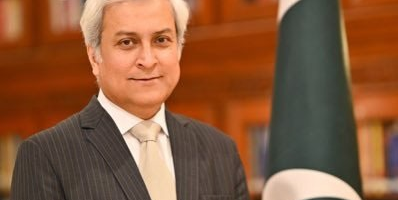Crisis-hit Sri Lanka hikes rates as protests spiral

Colombo, APR 8: Cash-strapped Sri Lanka’s central bank hiked interest rates by a record 700 basis points Friday as police fired tear gas at hundreds of students protesting over the economic crisis.
Severe shortages of food and fuel, alongside lengthy electricity blackouts, have led to weeks of widespread anti-government demonstrations — with calls for President Gotabaya Rajapaksa to resign.
The latest protests saw students try to march to the national parliament on Friday.
Monks, who had largely rallied the Sinhala-Buddhist majority to elect Rajapaksa at the November 2019 polls, were also seen joining demonstrations in the capital Colombo.
Demonstrators nationwide carried placards saying “Gota go home”, demanding Rajapaksa and his administration step down over the country’s worst economic crisis since independence in 1948.
– Damage control –
The Central Bank of Sri Lanka said its benchmark lending rate had been raised to 14.5 percent to “stabilise the exchange rate” after the rupee tumbled over 35 percent in a month.
The rate for deposits was also increased by seven percentage points to 13.5 percent as reports said Sri Lanka’s rupee was the worst-performing currency in the world, edging out the Russian ruble.
The bank’s newly appointed governor, Nandalal Weerasinghe, said attempts to control foreign exchange markets and keep interest rates artificially low in the past year had contributed to the unprecedented economic chaos.
“We are now in damage control mode,” Weerasinghe said at his first press conference since replacing Ajith Cabraal, who was virtually forced out Monday as the country was on the brink of bankruptcy.
“We would not have had to make such a sharp increase if rates had been raised incrementally over a period of time,” Weerasinghe said, vowing to relax exchange controls introduced by his predecessor.
The bank said the shock-treatment rate hike was due to its belief that the embattled island’s inflation, which is already at record levels, could get worse.
The Colombo Consumer Price Index rose 18.7 percent in March while food inflation stood at more than 25 percent, but private analysts placed inflation at over 50 percent in the month.
International rating agencies have downgraded Sri Lanka as fears grow that it could default on its $51 billion external debt after foreign reserves fell below $2 billion at the end of March.
Related News

Pakistan condemnsIndia-Canada nuclear pact
Pakistan reiterates that civil nuclear cooperation must be governed by a non-discriminatory, criteria-based approach applicableRead More

The Power to Give, the Strength to Gain!
Mani Kohli: A symbol of excellence, perseverance & generosity Erum Masood On March 8 eachRead More


Comments are Closed